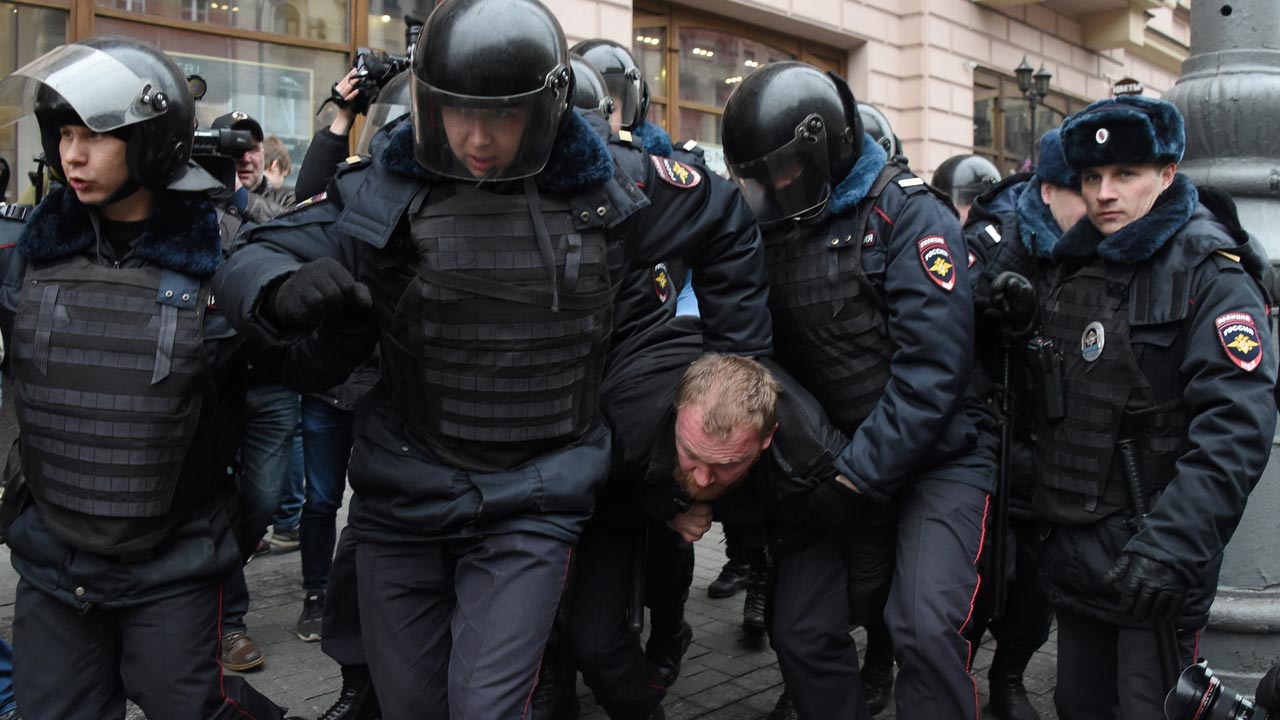By AFP
 |
| Russian police officers detain a man in central Moscow. PHOTO: VASILY MAXIMOV / AFP |
Russian police on Saturday arrested dozens of opposition politicians and municipal deputies at a conference in Moscow, organisers and participants said.
Participants from more than 50 of Russia’s regions had gathered to discuss parliamentary and local elections in September at a forum organised by a project backed by prominent Kremlin critic Mikhail Khodorkovsky.
Forty minutes into the conference police broke up the event and detained around 150 deputies, said opposition activist Ilya Yashin.
“A very symbolic end to a short forum: deputies in police vans, and masked police are twisting people’s arms,” Yashin said on Facebook.
A number of well-known opposition figures including Yashin, Vladimir Kara-Murza, Yulia Galyamina, Yevgeny Roizman and Andrei Pivovarov as well as journalists have been detained.
A spokesman for Moscow police told AFP he was unaware why the conference had been broken up.
Pivovarov, speaking to AFP from a police station, said the forum participants had been detained because authorities believe that the conference was organised by Open Russia, a movement founded by Khodorkovsky and designated as an “undesirable organisation.”
The municipal forum — the first of its kind — was organised by the United Democrats group, Pivovarov said, noting that authorities appeared to look for a pretext to interrupt an opposition event.
“Their goal is to intimidate us,” he said.
The team of jailed Kremlin foe Alexei Navalny said authorities were putting pressure on critics ahead of the September elections.
“It is clear why the forum has been broken up — authorities are afraid of any competition during elections,” the team said on Telegram messaging app, adding that the ruling party United Russia was getting increasingly unpopular.
“Winning even rigged elections is becoming ever more difficult.”
Khodorkovsky’s Open Russia was banned in Russia in 2017 in line with a controversial law that targets foreign groups accused of political meddling.
Entities put on the “undesirable” list are banned from issuing any publications in Russia, while people cooperating with them could be hit with fines, jail time and Russian entry bans.
Khodorkovsky, who owned the oil giant Yukos before he was convicted in two controversial cases and spent a decade behind bars, now lives abroad.
In this article:
